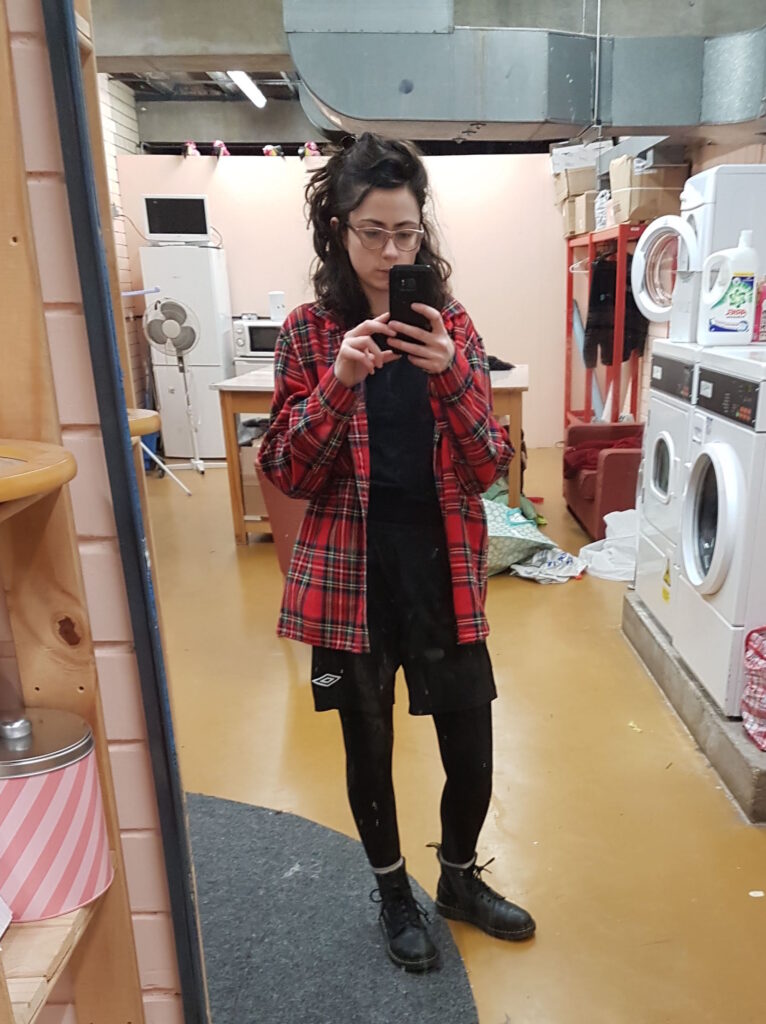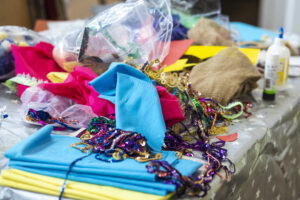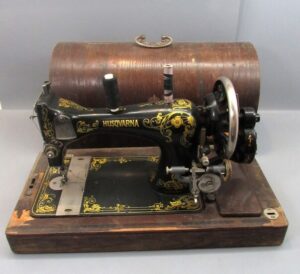Ten months in lockdown reflecting my career choices in this industry has been a bit of a headache so I’ve chucked it all down on paper…
I spent 10 years working in theatre as a set and costume designer and in wardrobe. The majority of the work I did was low paid. It took me five years to earn enough to pay tax. I earn on average £16k a year.
I’m now approaching 30 and I still live with my parents. It made sense to keep my childhood bedroom as my base because my work took me all around the country. I moved to London for a year when I got a contract at the National, but otherwise have lived here.
Before the pandemic I started looking at mortgages as I have saved a decent sized deposit. Even with the deposit I don’t earn enough to get one without help from my family and that’s buying in a seaside town away from the city… But I’m not here to discuss the pitiful state of the housing market. And anyway, since the lockdown my average earnings have been slashed and I’m not sure where it leaves me now. If I want to move out I’ll be renting I guess.
After all my work was cancelled, I got a part time virtual admin job with a lady I met through local networking. It’s one of the best jobs I’ve ever had. The work isn’t creatively fulfilling and I’m not exactly excited when I set about doing my weekly tasks, but my manager treats me with respect and appreciation, she pays me £20 an hour, and she pays my invoices within a day. We have a laugh and get the job done.
I was buzzing when she told me the rate [the best hourly rate I’ve ever had by a country mile] which after some reflection got me narked. Why am I slightly gobsmacked at someone wanting to pay a 30 year old with a degree £20 an hour? Clearly the value I put on myself is considerably lower and the only logical reason for that is because I have in my head that I’m worth what I have been paid to date.
It made me reflect on the career I worked so hard at for the last ten years. Was it worth it?
I spent some time looking back at my CV, my hundreds of credits and it’s frankly embarrassing. I’m embarrassed for that girl that was so happily exploited. I look back at the memories of jobs I thought were super fun and see them in a different light. People I thought were cool were actually exploiting me. The first ten years of my career are tainted with regret.
I spent two years and £20k studying to become a set and costume designer. I’ve never had a job that paid the industry standard rates for design. I’m annoyed that no one said to me all those years ago to know my worth. Where was the life advice when leaving uni? The majority of my classmates work in town and have stable secure incomes, although none in creative capacities so it’s not entirely comparable. Yet I spent a long time wistfully resisting the catch-ups with my uni friends as I felt so far behind, it was all talk of the west end and my little fringe gig never seemed relevant.
Where is the advice and support for creatives? Did I just ignore it or was it never there?
Where was the advice to get a stable job first, in the creative industry or otherwise. I could have a flat by now if I had done that. I could start my creative career now at 29 – after having set up my life how I wanted it. If given the chance again I would take that option. Can I go back please and start again? Because, instead, I put my life on hold and spent my 20s working my ass off for free, for a series of half-baked wannabe producers putting on mediocre shows who probably never even considered writing a business plan. I also absolutely caned my GCSEs and A Levels. I have a niggling recurring thought that I fucked up and should have taken the academic pathway which was open to me back when I was 18. I could be surviving this pandemic in my own place. Being creative at the weekend. Designing for local Am Dram. Enjoying the love of theatre. I COULD GET A DOG.
There’s no advice about separating life and career; it’s all one thing. ‘Sacrifices for our art’ conversations are commonplace in theatre. But why? Why is that the norm?
This pandemic has highlighted to me how toxic this industry is. We’re fighting a pandemic. We’re fighting for government support. But we’re also fighting each other. Fighting producers and companies that are trying to capitalise on this situation by lowering wages to make themselves richer in the future. And I’m sick of it.
The Wardrobe Chronicles has spent countless hours creating resources, running webinars and having conversations about improving our industry. The incredible people in CITEA have started conversations into why wardrobe and costume folk work in conditions that don’t match the guidance set out in the ABTT yellow book. Why do we work in rooms using harmful chemicals with no ventilation? Why do we accept that we have to work in rooms with no heating? Why do we think it’s okay to carry heavy costumes up five flights of stairs ten times a day when there are offices on the second floor empty in the evening?
These conversations are happening and you need to join them, it needs voices. Please follow and join CITEA – they will be releasing a series of surveys. Which yes yawn. But also incredibly, incredibly important – stats and facts make cases harder to ignore. So please do your bit and contribute in anyway you can. Ten minutes of your time. And then make it your responsibility to get two other people to fill it out too!
There is also another glimmer of hope.
This pandemic has reignited communities. People are talking. Groups are assembling. I can only speak for what is happening in my hometown but if it’s happening here it must be happening elsewhere. I’m part of a new arts collective made up of people across all creative industries and we’re on the brink of converting a grade 2 listed building into a community arts space. And you can bet that no one fucker is going to rinse it of all its capital.
The focus has turned away from the big bosses. The select few that make millions. The attention and motivation is in community. Let’s work together. “Support small business!” I want to work in the same town I want to live in.
My west-end friends are rethinking. Two have left the industry entirely. One has moved to Wales and is going part time, if it doesn’t work she’s quitting too. To paraphrase one of them “I love theatre and I’m not done with it yet, but I earn more working at a covid testing site than what they were offering for the pandemic version of the west end show I was on. And I can currently walk to work. The dream now is to get a job in my local theatre”. The only thing the West End has is its’ reputation. The standard of work is sublime. World leading. “The end goal is to be at a West End theatre!” Why though?
Tides are changing. People are waking up to the fact that working in a city you’ll never be able to comfortably afford to live in, just to have those two words on the CV, might not be worth it. We can make world-class productions in regional theatres. We want decent wages, and companies that care about their staff. We want to have a laugh and get the job done. Then we want to go home and relax.
The West End and other leading organisations need to wake up and start treating their workers better. The potential skill shortage after this pandemic should be a real concern. The regional theatres paying minimum wage on zero hour contracts need to wake up too because we’re building our own spaces and any cash we make will be invested in people and projects we believe in, and that ethos is attractive to the many skilled, talented workers who have been taken advantage of for so long.







